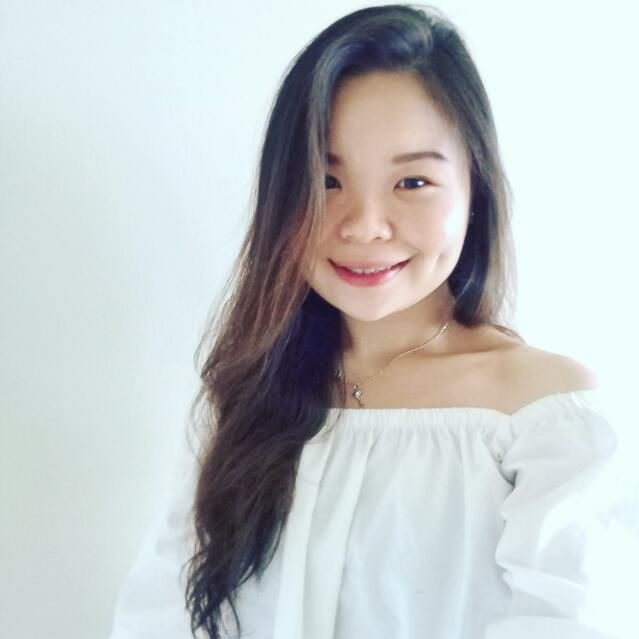
by So Jung Rim | Oct 29, 2018 | News, SUNWAY SISU
As a student in business school, I’ve always been fond of topics revolving around entrepreneurship. For me, entrepreneurship is all about solving problems and improving lives, whilst being self-sustainable and even profitable. As a major in Accounting and Finance degree, I’ve always wonder if there’s more to just monetary value which businesses can create. After a year trying to discover more meaning behind my studies, I was introduced to the idea of social entrepreneurship. I was amazed how it is possible to synergize the power of conventional business with core purpose of solving social or environmental issues, that leads to greater value generation, and this is more than just dollars and cents. I knew I needed to share that idea to my course mates, particularly because they were also from the business school and very likely to be involved in the business world in the future. I thought if the idea of social entrepreneurship can be instilled in their minds, it might trigger them to create innovative social projects or even business models that are both socially and financially sustainable.
However, conveying the idea wasn’t exactly the easiest thing to do, especially because social missions were never really a major discussion topic in our typical syllabus. Anything social-related was always a “side-dish” in our textbooks that students tend to deemphasize. Whenever I try to communicate how a social issue can be tackled through business models, my friends couldn’t grasp the idea. Social and financial goals are always black and white for them because social missions are always incorporated in a company under corporate social responsibility (CSR) and it often means money flowing out instead of revenue coming in to the company. There were some efforts by the university in trying to educate the campus community more about social entrepreneurship and social innovation ideas through forums and talks. But I thought we needed a more relevant way to do that so that people would finally notice. So, I decided to show the idea, literally, to the campus community because “seeing is believing”.
After assembling a group of close friends, we began to reach out to social enterprises across Malaysia and invited them over to the campus to run a social market – a marketplace for products and services that are created to bring better change to the lives of underserved communities and nature. The Good Tavern Social Market becomes more than a marketplace, it is where people share stories, spread ideas, and connect like-minded people. It wasn’t long until more and more people heard about the project and soon we expanded beyond campus, into one other university and also MaGIC Cyberjaya (also known as the Silicon Valley of Malaysia). We knew we were doing the right thing because people were finally listening. The simple idea of running a marketplace wasn’t just about sales, but it’s truly for the social innovators, social enterprises, and even the underserved community to share their stories, with the greater hope to inspire more changemakers for a better world.
I have been blessed to be in a university environment where I had supportive lecturers and friends to make The Good Tavern (TGT) possible. The team might have created TGT but TGT was the one that has built us to be more creative, compassionate, and agile as human-beings. We’re connected to many organizations and projects, like SEASIN, who constantly show support in making us better so that we can continue to innovate and improvise projects. As a proud millennial, I believe we are becoming more conscious of issues beyond our own daily lives, but of greater ones that can impact our future generation. Change for the better is possible even with the simplest idea. We just have to click the “start” button.
Chloe Tee, former student at Sunway University
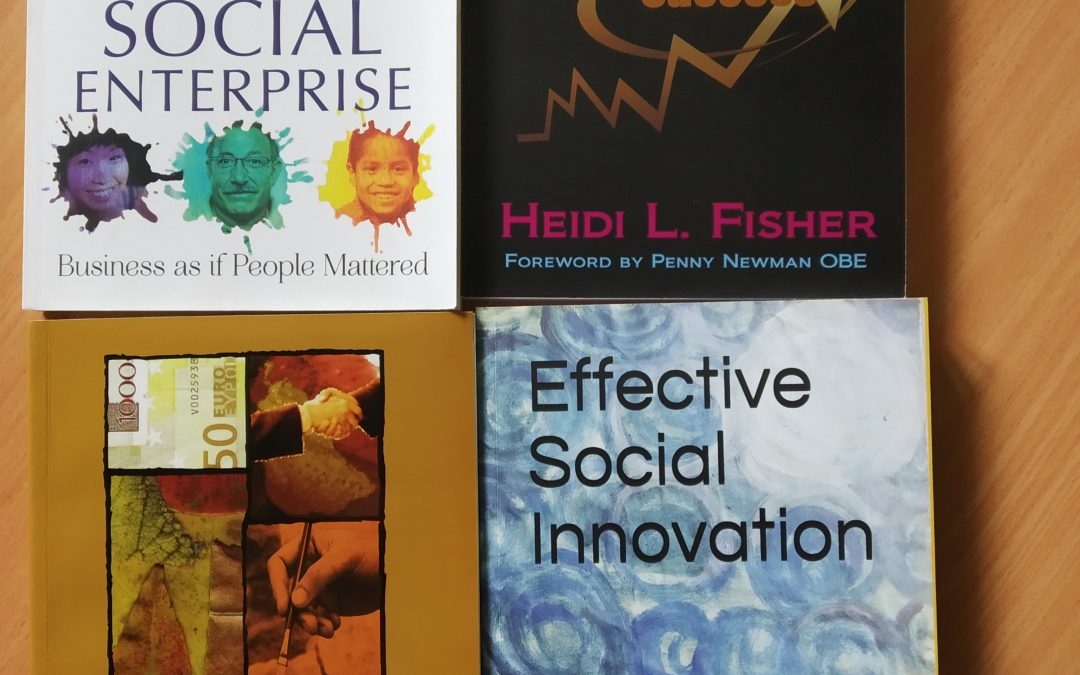
by myothein | Oct 22, 2018 | CU SISU, News
Dear SISU users,
We would like to announce the arrival of new books on social innovation in our small library of TCU SISU. You are invited to learn new books to promote your knowledge and awareness on social innovation.
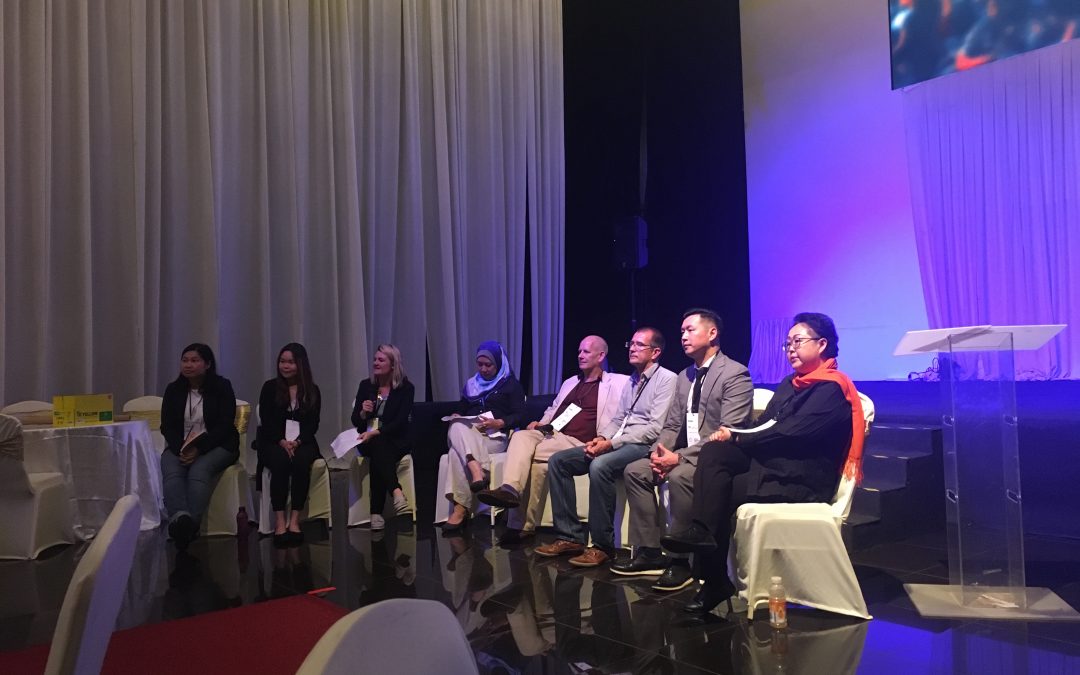
by So Jung Rim | Oct 18, 2018 | News
During SI-LIVE ASIA, SIX hosted a talk show on creating spaces and changing structures: how universities can change their systems. We brought together the perspectives from across the university structure – leadership, management, academia, student – as well as the perspectives of three external organisations that work with universities: British Council Hong Kong, The Good Lab and School of Changemakers.
Here are our speakers’ reflections on what one action universities could take to shift their behaviour and incorporate more social innovation.
Phonchan Kraiwatnutsorn, Founder and Managing Director at School of Changemakers: Active listening workshops that create time and space for those across universities to work together is key! One of the hardest challenges within universities is having the time and skill to listen to each other.
Chloe Tee, student at Sunway University: Changes should come from the people we learn from – lecturers. It can be something as simple as incorporating short videos on social topics into the breaks within long lectures that will spark interest in students.
Dr. Faizah Majid, Faculty of Education Dean at Universiti Teknologi MARA: I want to focus on changing the mindset of lecturers and helping integrate social innovation into their curriculums.
Mark Anderson, Director of the Europe Office at Glasgow Caledonian University: I think it’s important to professionalise the support for social innovation within universities. Innovation has become a part of a university’s DNA – the same needs to happen with social innovation.
Simon Teasdale, Professor of Public Policy and Organisations at Glasgow Caledonian University: Universities shouldn’t impose social innovation onto lecturers’ curriculums – it just becomes another box to tick. Instead, lecturers should listen more to students.
Christopher Ng, Head of English for Education Systems at British Council Hong Kong: It’s essential to enhance their transparency and finding where the commonality of all university stakeholders lie. Universities should stop being as guarded about their research and share more.
Ada Wong, Founder and Convenor at The Good Lab: Universities should ‘leapfrog’ and ‘mainstream’. We need to embed in young people going through the higher education system 21st century skills so that they become natural problem solvers when they graduate. We need to bring social innovation into universities’ innovation departments and unite techies and social innovators – we need more techies to talk about smart cities and social innovators to ask the question ‘who are smart cities for?’
SI LIVE ASIA helped spark a dialogue between researchers and practitioners about the role that universities should play in the future. Students are often keen to find ways to help tackle the biggest challenges that societies face today, and universities are hotbeds of cutting-edge research and innovation. Yet as institutions, they are often hard to innovate and change, with traditional hierarchies and governing structures. If they want to become more than academic institutions, and more in touch with the communities around them, universities need to find better ways to harness the energy of students, researchers and practitioners to improve society and direct innovation towards social change.
The framing for SI-LIVE ASIA came from a report SIX wrote last September on Five ways universities are organising themselves to increase societal impact. To find out more about the SEASIN project, please visit the website.
What are you working on already that you’d like to feature on the SEASIN website to share with others working on social innovation in research/practice? If you would like to contribute to SEASIN, sign up to the newsletter or get in touch!
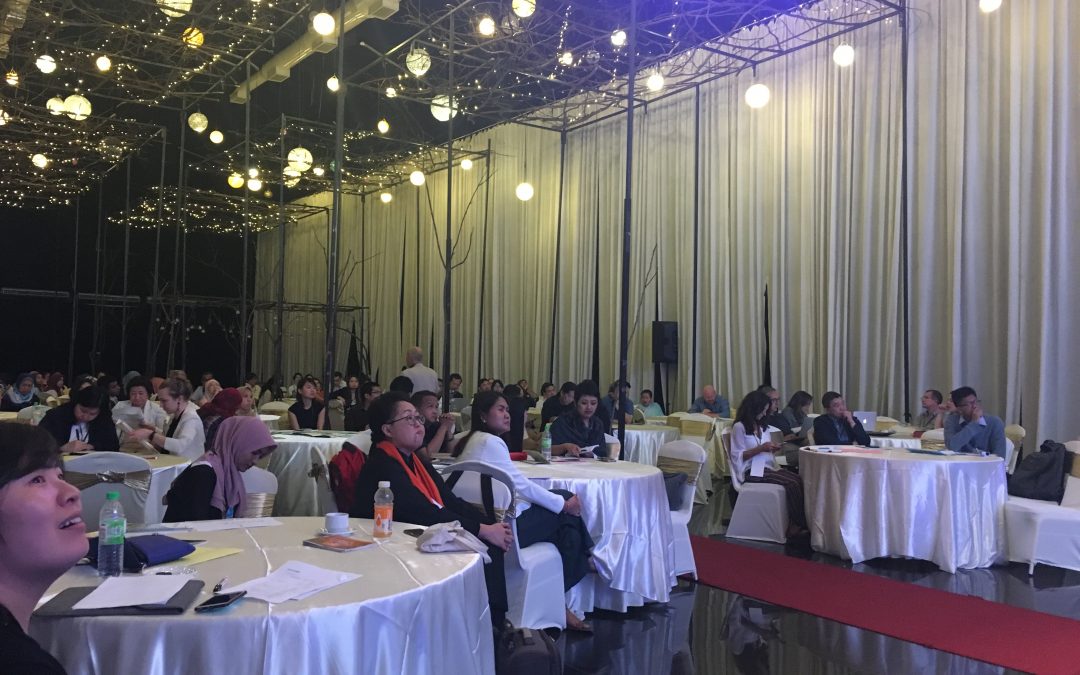
by So Jung Rim | Oct 18, 2018 | News
SI LIVE ASIA took place on 8-9 October 2018 in Kuala Lumpur, Malaysia. The two-day event brought together practitioners and researchers from South East Asia and beyond. With participants from over 15 countries and a range of backgrounds, the event explored three major challenges faced by universities today in helping prepare for the future:
- Rethinking research and practice: how do we build shared knowledge and better connect research and practice?
- Rethinking learning: how do universities interact more with their wider communities, and help people prepare for the real world?
- Rethinking systems: how do we create the space to help universities as institutions transform? How do we shift systems?
The first day of SI-LIVE ASIA was a provocation day that explored the above framing of the event through keynote speeches, a talkshow style panel discussion and interactive deep-dive sessions. These sessions covered everything from the role of research and universities in tackling the SDGs, to building knowledge and narratives between social innovation and STEM and human centred design. The second day gave participants the chance to delve deep into their understanding of particular topics, with 9 intimate roundtable discussions with abstracts presented by over 25 researchers and practioners. These covered topics as varied as civic urban innovation, enabling people with autism to find meaningful work, and empowering students to solve global health issues. Please see here for the full programme over the two days. For a list of speakers, please see here.
During the first day of SI-LIVE ASIA, SIX hosted a talkshow on creating spaces and changing structures: how universities can change their systems. We brought together the perspectives from across the university structure – leadership, management, academia, student – as well as the perspectives of three external organisations that work with universities: British Council Hong Kong, The Good Lab and School of Changemakers. You can read their reflections on what one action universities could take to shift their behaviour and incorporate more social innovation here.
What are you working on already that you’d like to feature on the SEASIN website to share with others working on social innovation in research/practice? If you would like to contribute to SEASIN, sign up to the newsletter or get in touch!

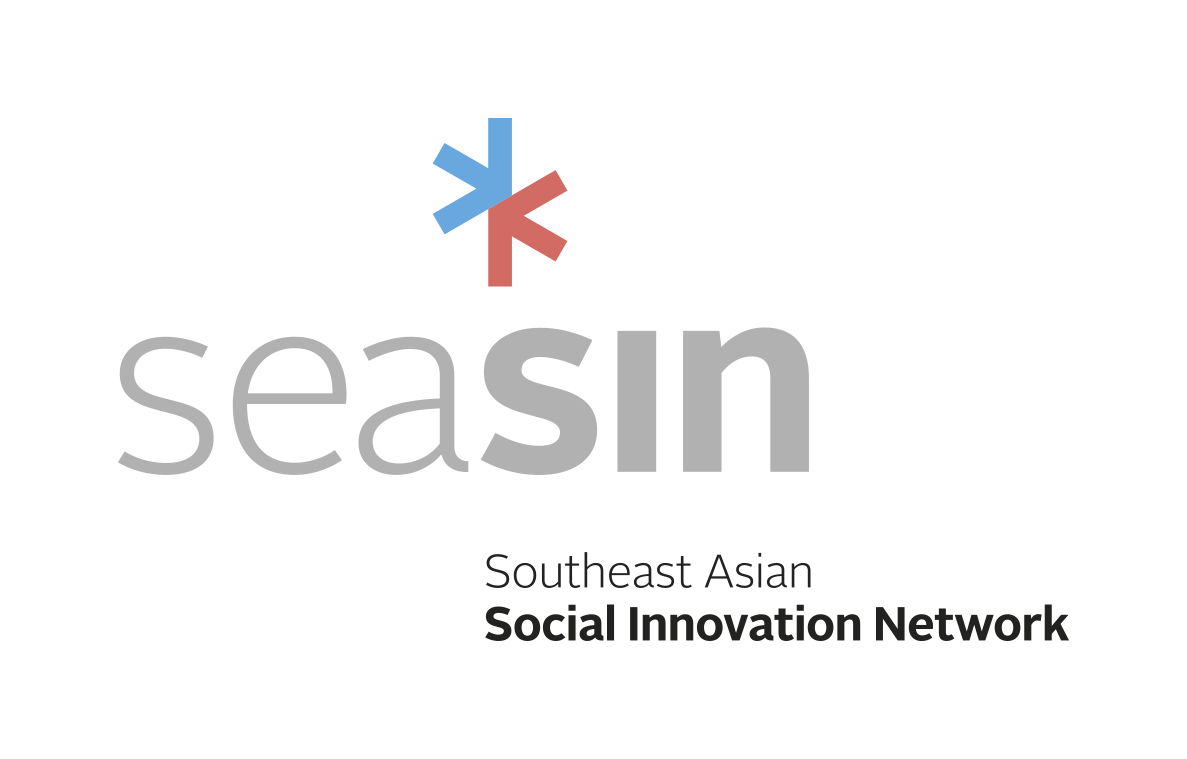

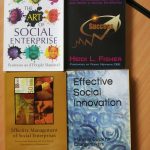
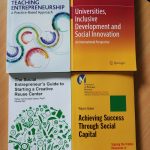
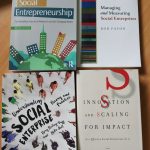



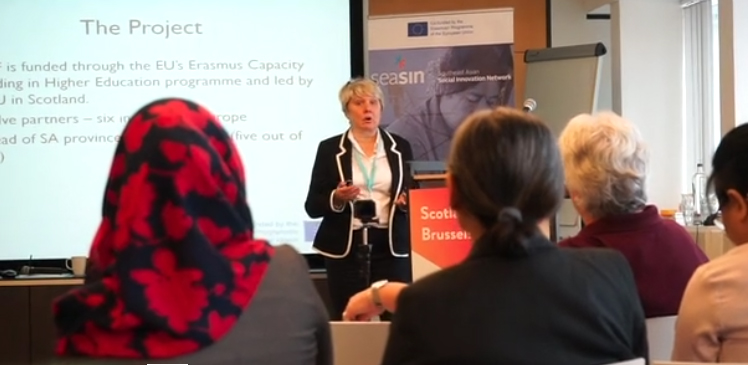
Recent Comments